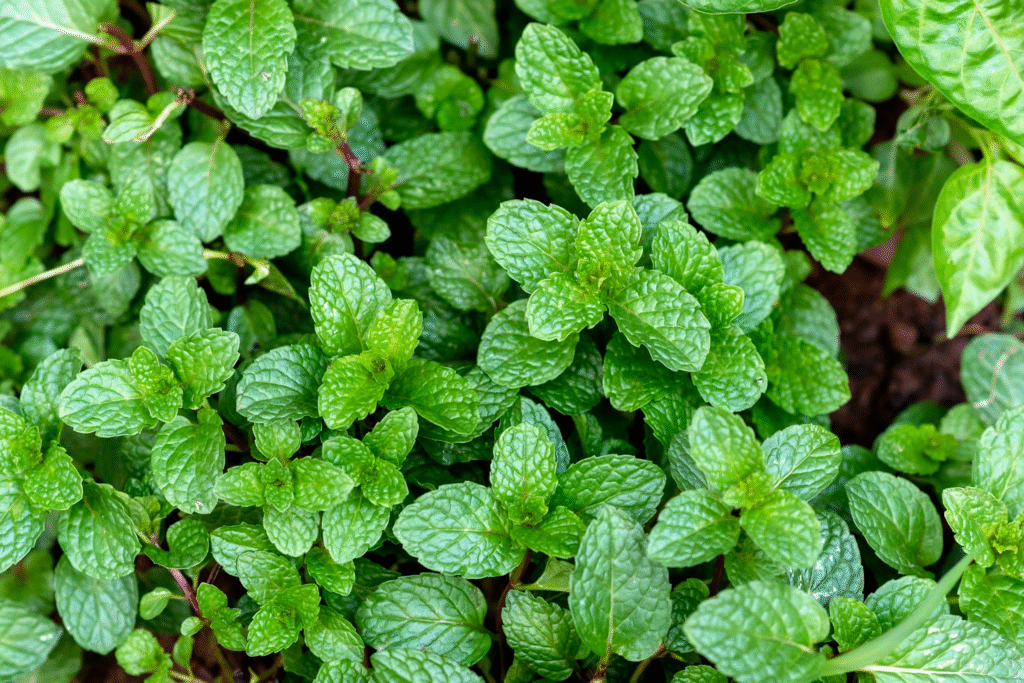In today’s world of chemical sprays and synthetic repellents, many homeowners are looking for safer, more natural alternatives to keep their homes pest-free. For families—especially those with children or pets—natural pest control offers a cleaner, healthier way to live.
Among the many eco-friendly options, one plant has earned a reputation as a true multitasker. It looks beautiful, smells refreshing, and keeps unwanted pests at bay. That plant is peppermint.
You’ve likely used peppermint in tea or seen it as a flavoring in candies. But what you may not know is that peppermint is a remarkably powerful natural pest deterrent, helping repel spiders, mice, ants, mosquitoes, and more.
The Miracle of Peppermint: More Than Just a Pretty Herb

The peppermint plant (Mentha piperita) is a hardy perennial herb that belongs to the mint family. With its bright green leaves and invigorating scent, it’s long been a favorite in kitchens, gardens, and herbal medicine cabinets.
But what truly makes peppermint stand out in the world of natural remedies is its high menthol content—the same compound that gives it its cool aroma also disrupts the sensory systems of common household pests.
In other words, what smells fresh and comforting to us smells confusing and overwhelming to pests.
How Peppermint Keeps Spiders Out of Your Home
Few things are more unsettling than spotting a spider scuttling across your living room floor. Fortunately, spiders are extremely sensitive to scent, and peppermint’s strong menthol fragrance overwhelms their senses.
Here’s how it works:
- Spiders rely on subtle environmental cues and vibrations to locate prey.
- Menthol disrupts their ability to detect those cues, making them disoriented and uncomfortable.
- The result? They avoid areas where peppermint is present.
Placing a peppermint plant near doorways, windows, and dark corners—especially where spiders tend to build webs—can serve as a natural spider barrier. You don’t need traps or sprays. Just nature doing what it does best.

A Natural Way to Keep Mice Away
Mice might look cute in cartoons, but no one wants them inside their home. These tiny invaders rely heavily on their sense of smell to navigate, find food, and build nests.
Peppermint’s intense scent is unbearable to mice, and studies have shown that menthol disrupts their olfactory patterns, making it difficult for them to function in areas with a strong peppermint presence.
For the best results:
- Place potted peppermint plants near entry points such as doors, basement windows, and vents.
- You can also crush peppermint leaves slightly to release more scent or pair your plant with a few drops of peppermint essential oil on cotton balls near trouble spots.
It’s a pet-safe, child-safe alternative to traps and poison—making it an ideal solution for families looking to protect both their home and their health.
Peppermint vs. Insects: A Battle It Always Wins
From buzzing flies to sneaky ants and relentless mosquitoes, most homes deal with insect invasions at some point. And while bug sprays may offer short-term relief, they often contain harsh chemicals that can irritate skin, lungs, and eyes.
Peppermint offers a gentler but highly effective solution.
Here’s how:
- The aroma of peppermint confuses insects by masking the scent trails they use to find food and breeding sites.
- Mosquitoes, ants, and even flies are known to avoid areas with strong menthol content.
- Placing a peppermint plant in the kitchen, bathroom, or anywhere food is stored can help keep bugs from taking over.
You can also steep peppermint leaves in hot water to make a homemade spray and spritz it near entryways or in areas prone to infestation.
Why It Works: The Science Behind the Scent
The key ingredient in peppermint’s pest-fighting power is menthol, a natural organic compound found in high concentrations in the leaves.
Scientific studies have shown that menthol:
- Interferes with neurological pathways in insects and rodents.
- Triggers avoidance behavior in pests by affecting their receptors.
- Overstimulates the olfactory senses, leading to confusion and escape.
This makes peppermint one of the most scientifically supported natural pest repellents available—and unlike commercial products, it brings no harm to your home or the environment.
How to Grow and Care for Peppermint Indoors
continue reading in page 2





